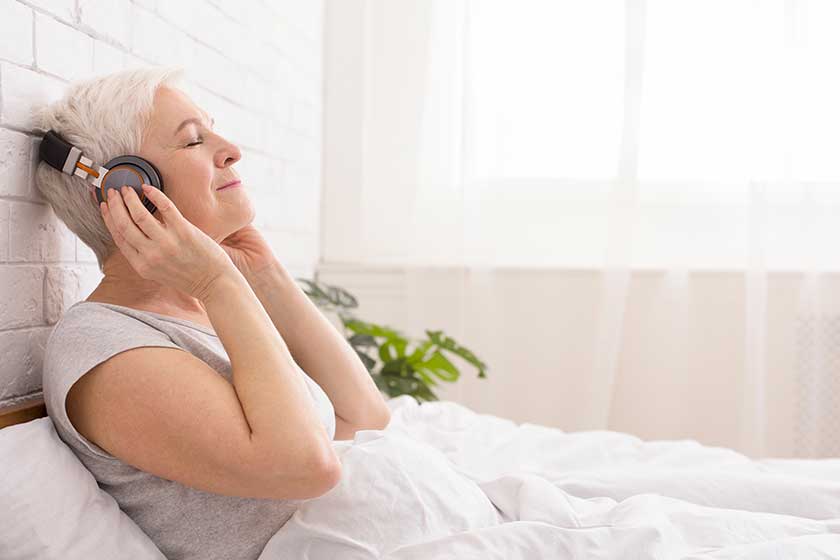As we age, the likelihood of sleep issues affecting our nightly rest increases. Experts say that these sleep issues are due to changes in sleep architecture and our circadian rhythms. However, having poor sleep every night will eventually lead to poor quality of life, as well as increase the risk of problems to our physical and mental health. To achieve better sleep each night, researchers have found that listening to calming music before bedtime had a positive impact on older adults’ sleep quality. What exactly is music therapy about and how can you use it to sleep more soundly and get better rest?
Music Therapy
Music therapy has been studied as a form of nonpharmacological intervention for improving sleep quality in adults. Specifically, listening to soft, melodic music with 60 to 80 beats per minute can have a sedative effect that helps to encourage rest and relaxation.
How Does Music therapy Affect Your Sleep Quality?
Some studies suggest that it is the soothing effect of music that creates the condition for our bodies to sleep better. By decreasing the cortisol levels in our bodies, music helps to put our minds at ease and triggers the release of dopamine, resulting in good feelings at bedtime and soothing any symptoms of pain that we might be experiencing.
Other studies have found that music also soothes our autonomic nervous system, calming our bodies’ automatic and unconscious processes. This in turn contributes to an overall effect of slower breathing, lower heart rate, and lower blood pressure.
By allowing you to tune out stressful nighttime noises such as those coming from your neighbors, passing cars, or the sound of your pets, music also sets a calm mood for you to relax and fall asleep.
Designing a Playlist
When designing a playlist for your nightly routine, you should consider your own musical preferences, as well as the speed of each song. Some prefer classical music while others favor acoustic renditions of their favorite songs. Although musical preferences differ from individual to individual, you should still aim to select music that has between 60 to 80 beats per minute. There are multiple options online for sleep playlists and songs for meditation. Whether through Spotify, Youtube, or sleep apps, it is important to find out what works for you!
Improving Your Sleep Quality
We know that music therapy is not the only way to help you get better sleep. Other than including calming music in your nightly routine, you might want to consider adopting other healthy habits that can help boost your sleep quality. These include adhering to a fixed sleeping schedule, avoiding caffeine six hours before bedtime, and avoiding the blue light from your television and phone screens at least an hour before you turn in. You can also create the optimal bedroom environment for yourself and stick to calming routines like meditation or light reading.
Nutrition is important too! Maintaining a balanced diet can help to positively affect your sleep. Our active independent living community offers Sensations dining that promises mouthwatering and nutritious meals every day. Contact us today to learn more about our senior living programs!







